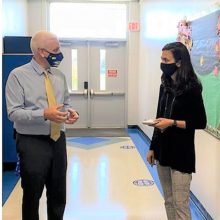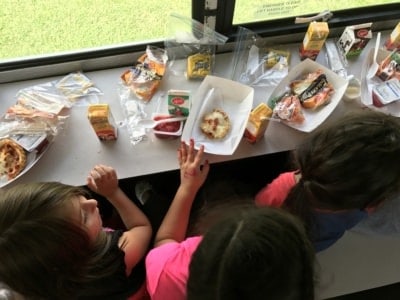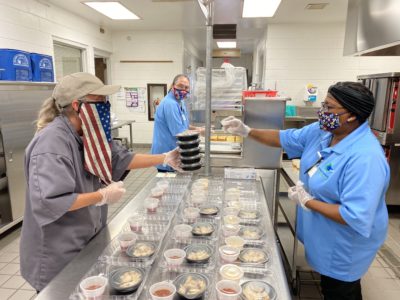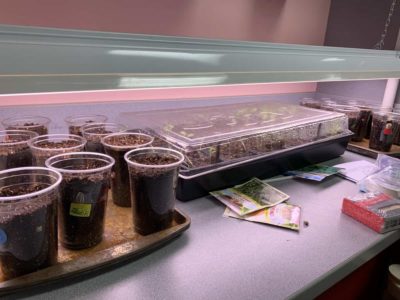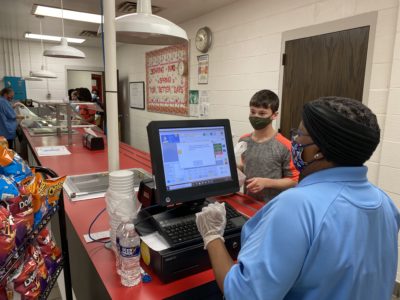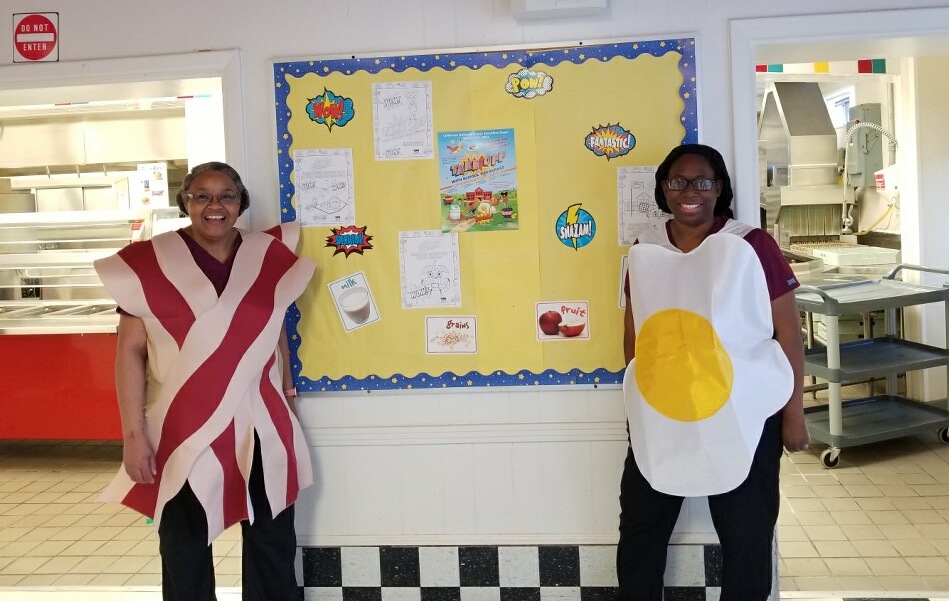

Share this story
- This National School Lunch Hero Day, get to know the stories of three cafeteria workers from across North Carolina, including what they think the public should know about their job👇 // @SchoolLunch @ncschoolmeals @carolina_hunger
- "All I can do is be out there in the front and show the children how much we care about them and make their eating experience a joyful one." This National School Lunch Hero Day, meet three school lunch heroes from across North Carolina.
Friday, May 6 marks the 10th annual National School Lunch Hero Day — a moment to celebrate the hardworking school cafeteria professionals who work day in and day out to prepare and serve nutritious meals to students across the country. These are the stories of three school lunch heroes in North Carolina.
Doreen DeJaynes, Alma Easom Elementary
Doreen DeJaynes is almost 65 years old, but she can still remember the kindness and warmth of Ms. Hope, Ms. Maggie, and Ms. White — her elementary school lunch ladies. Although DeJaynes never planned on working in school food, she is now the assistant cafeteria manager at Alma Easom Elementary, a K-1 school in Cumberland County. And she encourages everyone she knows to consider getting into child nutrition.
“It is fulfilling. I can’t explain the satisfaction I get knowing I’m feeding those hungry children,” she said.
DeJaynes works every day to leave the same impression on the students of Alma Easom as her own elementary school lunch ladies left on her, and that means more than just feeding students. DeJaynes and her school nutrition team are often the first people to greet students in the morning, sharing a smile, giving them hi-fives, and asking how they’re doing, providing a bright start to each student’s day.
During the pandemic, DeJaynes said her greatest sense of loss came from not being able to see students’ faces every day.
“And even when we came back in a limited capacity with everyone wearing masks … I didn’t get to learn their names, I didn’t get to have conversations with them,” she said.
Now, with masks off and students coming through the lunch line again, DeJaynes works to connect with each student and acknowledge them every day.
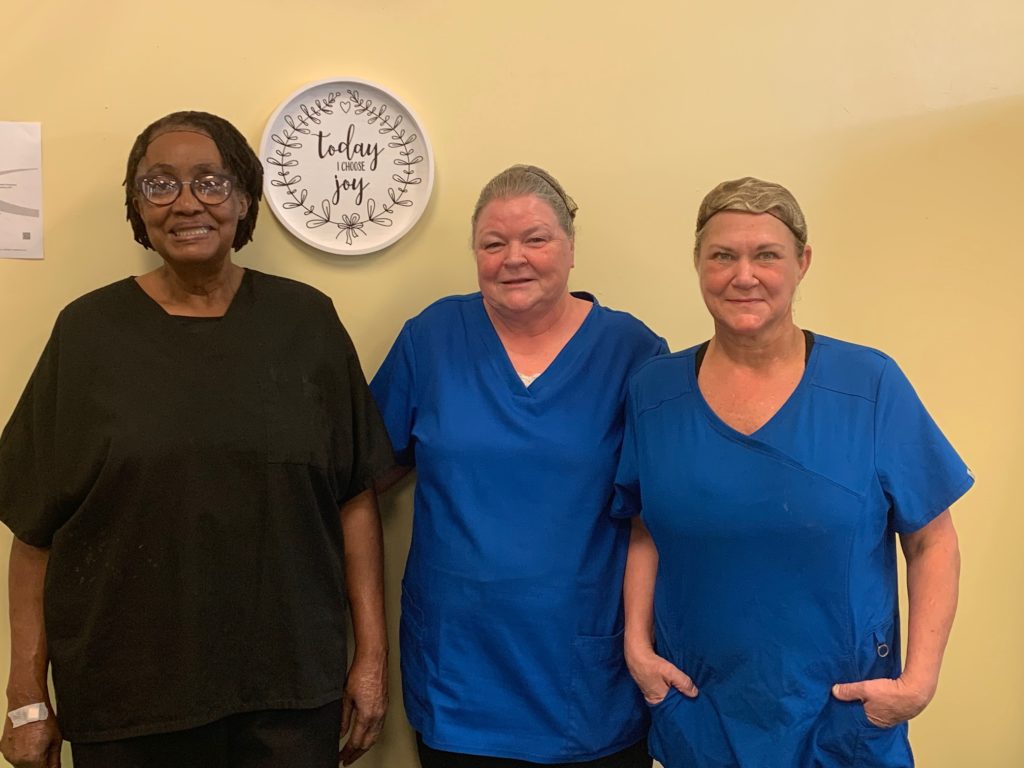

Even when the work gets tiring, DeJaynes says, “I’m always going to choose joy.”
“All I can do is be out there in the front and show the children how much we care about them and make their eating experience a joyful one,” she said.
DeJaynes has been working in school food long enough that some of the students she fed as elementary schoolers are now high school graduates. When she sees them around town, she says they often remember her and give her compliments.
“So for me, I’m the Miss Maggie of my childhood,” she said.
Teresa Huff, Douglas Byrd High
Teresa Huff is a military spouse and mother of three. After being stationed in Germany and running a home day care center, her family moved to Fort Bragg around 1997. She began working at a restaurant chain, but it was a lot to juggle, especially when her husband was deployed. Then she heard about opportunities in child nutrition and began working in school food, originally through a hiring agency and then full-time.
She says child nutrition has opened up so many doors for her and her family, allowing her to spend more time with her children and still have a career. Now, Huff has been in school nutrition for about 12 years and currently works as the cafeteria manager at Douglas Byrd High in Cumberland County.
Huff says she and her entire team of school nutrition professionals are the first ones the children see in the morning when they come through the door. Almost every day in school food comes with a new challenge, but Huff says everyone in the school plays a part in ensuring students get nutritious meals, including the school’s administrators and teachers.
“Most of my praise is just to my employees, because they show up and they give so much,” she said. “Without them, I could not do what I do.”
For Huff, the most rewarding part of her job is the impact she can have on students lives by engaging with them in the cafeteria, sharing a “good morning” or a “congratulations on your scholarship!” The next best part of her job is “pouring into people” by training the next generation of professionals who are dedicated to child nutrition.
“Anyone who comes through the door has something they can bring to the team, whether it be big or small — everyone is valued,” she said.
Outside of the cafeteria, Huff works to educate her community about the realities of childhood hunger and the role that school nutrition programs play in alleviating food insecurity.
“Our voices matter if we just educate, educate, educate and communicate that this program is so valuable,” she said.
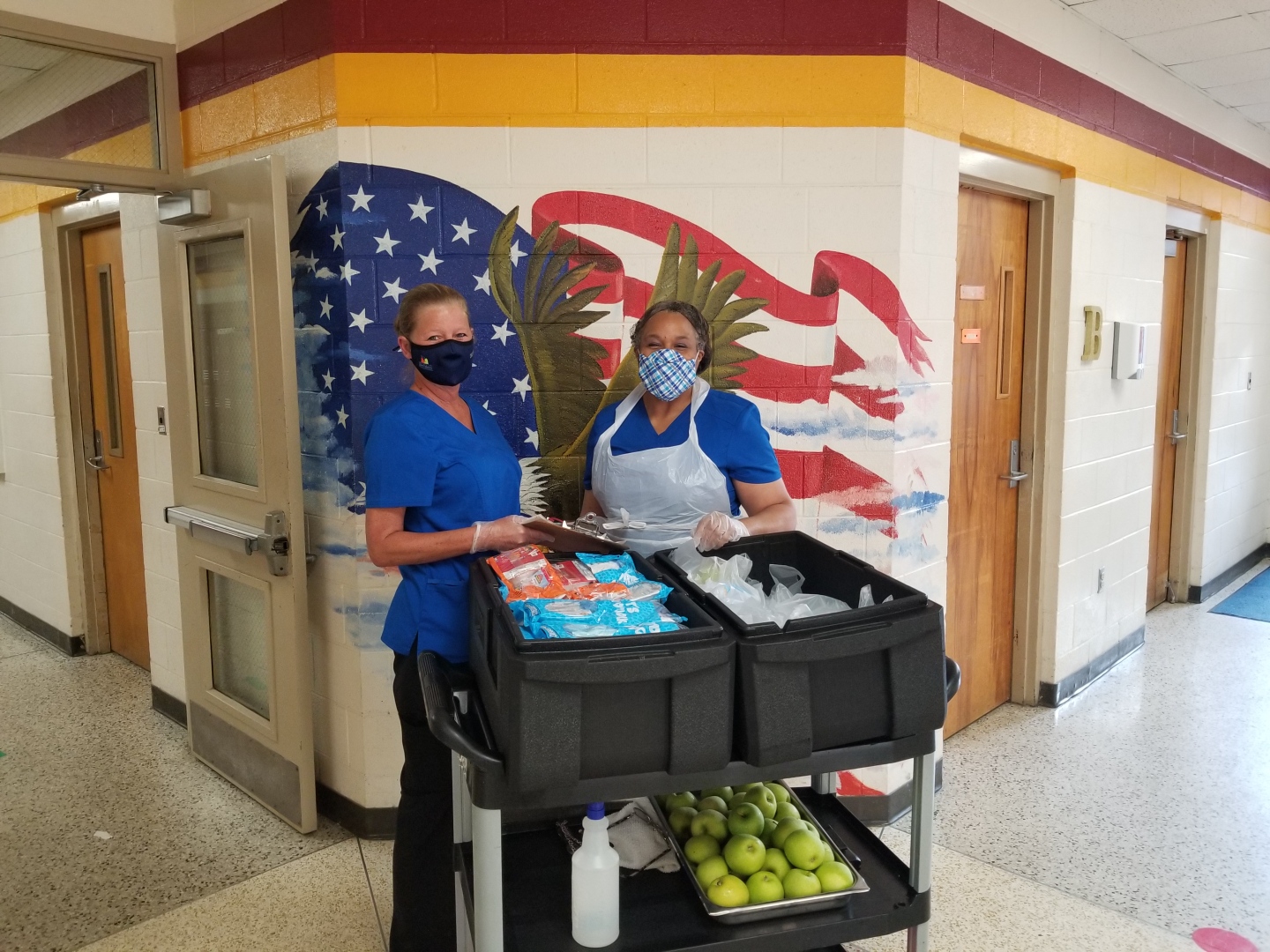

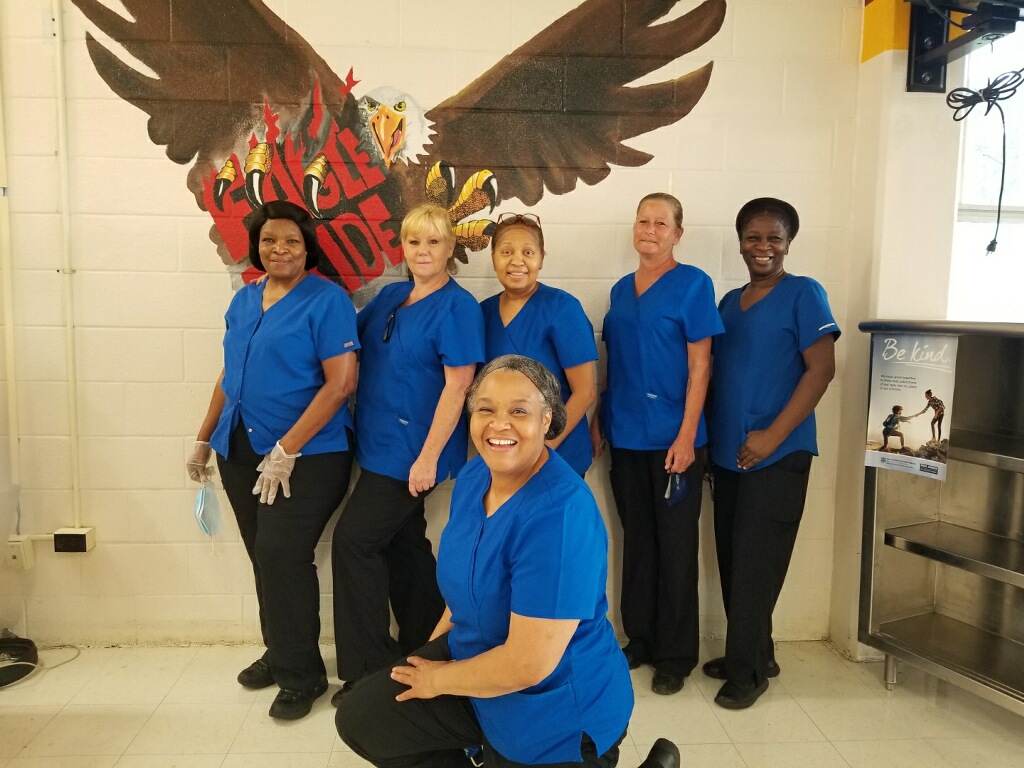

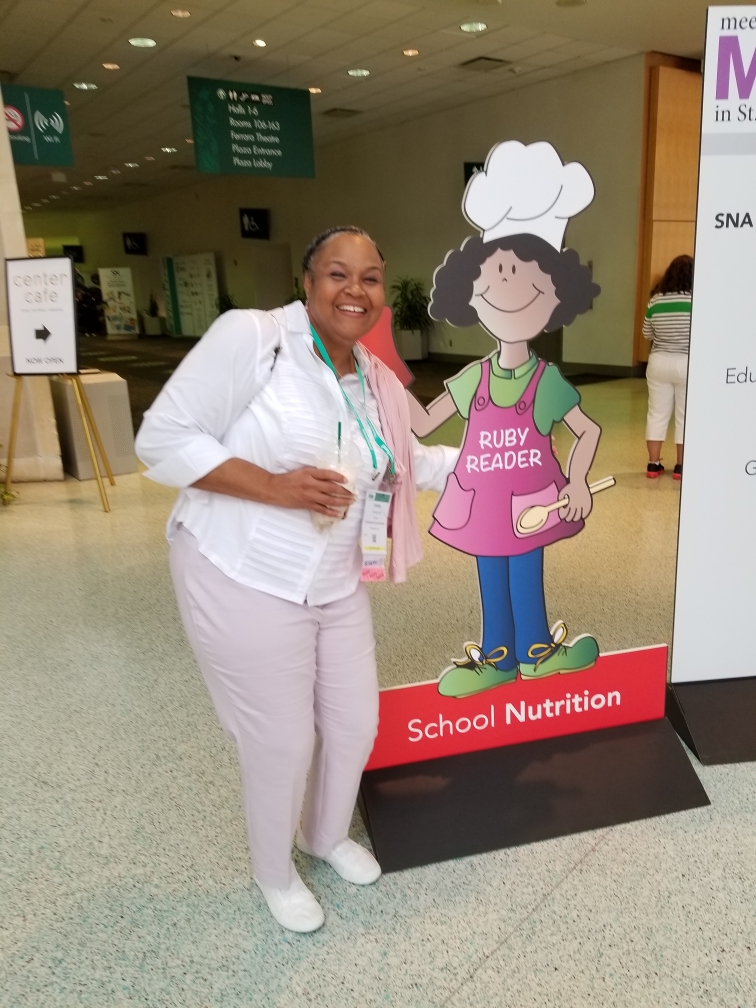

Mickiala Fuentez, McDougle Elementary School
Mickiala Fuentez has a passion for cooking. She began her career in school nutrition as a cashier, intending to work her way up to cook. Now, she serves as the cafeteria manager at McDougle Elementary School.
Her favorite part of her job? “The kids,” she said. “I like it when we first serve the kids and they say, ‘Oh, what is that?’ I love their facial expressions, especially on the elementary side.”
A typical day for Fuentez starts in the morning by making sure enough food has been prepared for the day, checking emails, and typing in the production record for the first part of the day. At lunch time, she’s making sure the food is out, hot, and ready, and that there’s enough for all the students. Around 2:30 p.m., her day ends after making sure all the food is prepped for the next day’s breakfast.
Even when her job gets hectic, Fuentez says she loves it because of the students she serves. Fuentez recently had a parent ask her if she could serve their child an extra lunch per day because they eat more at school than they do at home.


What our school nutrition professionals want you to know
We asked these school nutrition professionals one thing they think the public should know about their job. Here’s what they said:
“I’m not sure if people are truly aware of the work that goes into planning these menus.”
Doreen DeJaynes, assistant cafeteria manager at Alma Easom Elementary
From nutrition requirements to children’s allergies, DeJaynes says there is a lot of work that goes on behind the scenes to prepare safe and nutritious meals for students that meet strict meal pattern requirements. The United States Department of Agriculture (USDA) sets requirements for school meals that dictate the quantity and types of foods that must be served, including, for example, particular requirements for dark green versus red and orange versus starchy vegetables.
“I think people think we’re a program that’s fully funded.”
Teresa Huff, cafeteria manager at Douglas Byrd High
The vast majority of school food funding comes from federal reimbursements, and child nutrition departments operate financially independently of their school districts as self-sustaining, not-for-profit enterprises. School food programs rely on a federal reimbursement of less than $4 per meal to cover everything from food costs to equipment upgrades to staff salaries. For more on school food finance, read this article.
“We don’t have packaged food. Everything we make, we cook.”
Mickiala Fuentez, cafeteria manager at McDougle Elementary
On social media, Fuentez sees references to people assuming that everything on the school lunch tray is pre-packaged, but her cafeteria cooks every meal from scratch. Recent examples of entree items include turkey, lemon herb chicken, barbecue chicken, and enchiladas, which are served with vegetables like collard greens, mashed potatoes, and sautéed squash.
